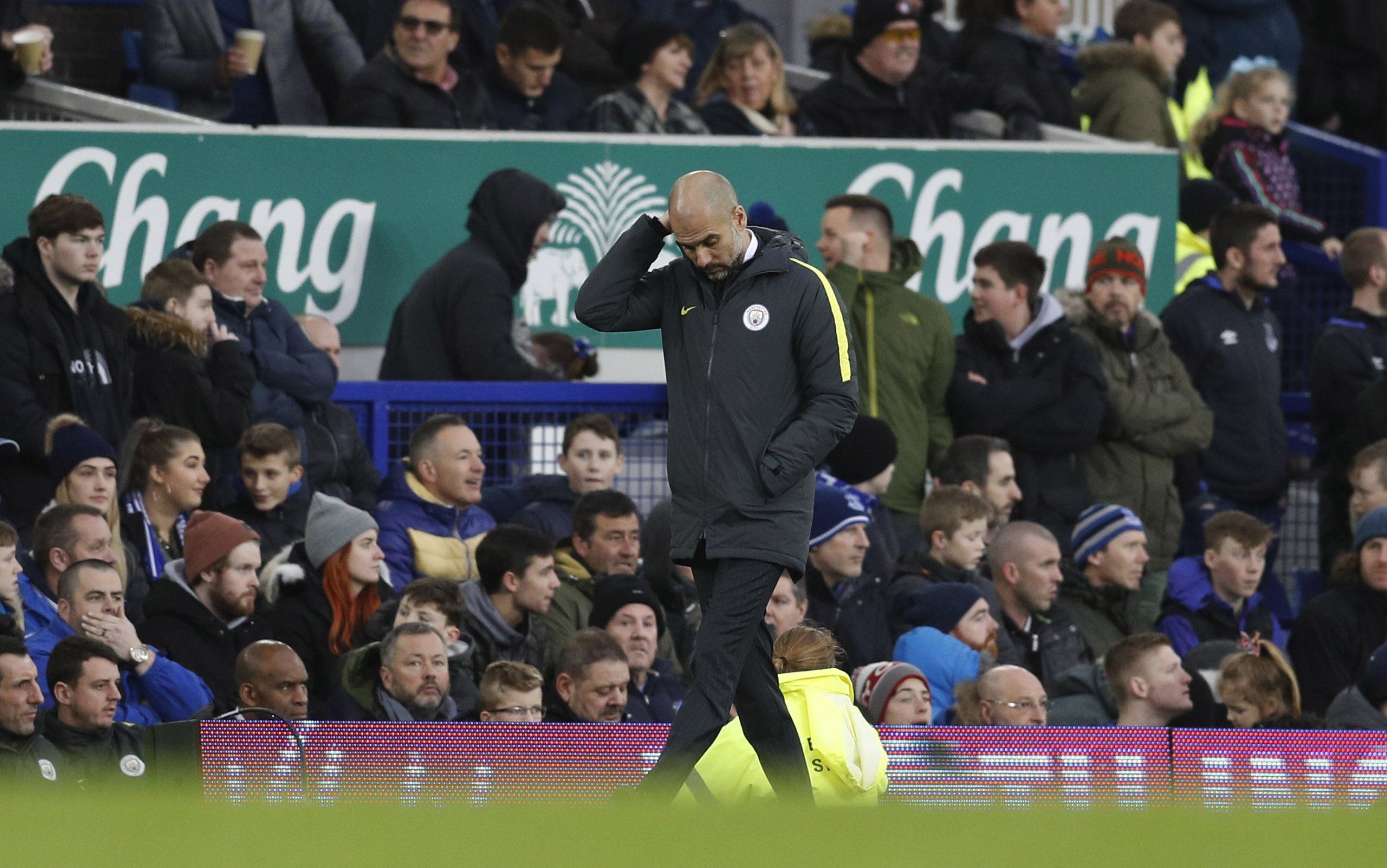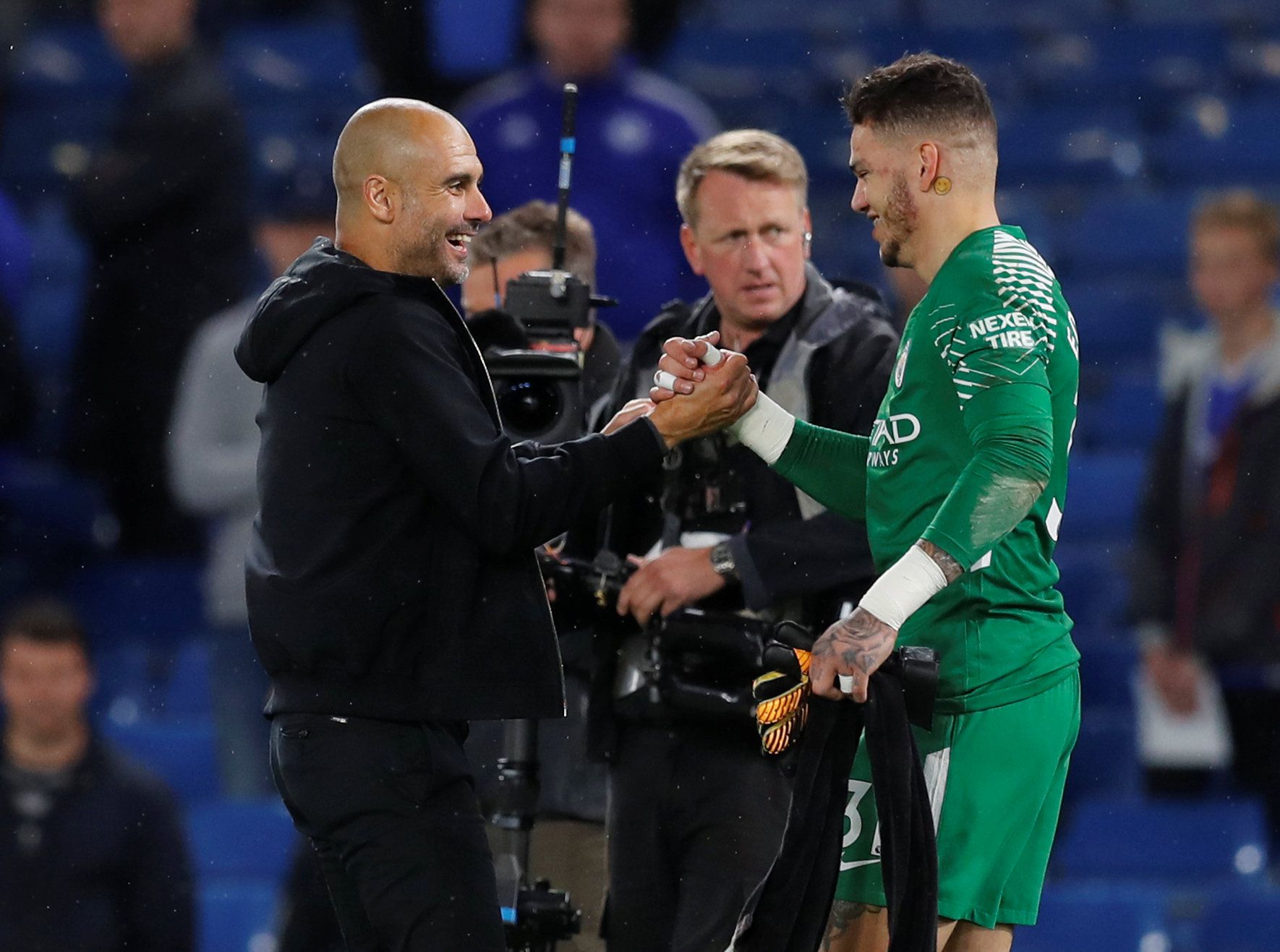When Pep Guardiola was officially announced as the next Manchester City coach, the excitement among the blue fan-base swiftly escalated to fever pitch.
After all, this was a man who had re-designed modern football, orchestrating a template of imaginative possession and innovative tactical implementation at Camp Nou and Bayern Munich that was not only beautiful to behold but was astonishingly successful too. From 239 league games he had lost just 19 while his eight seasons in the technical area brought an unprecedented dominance of seven league titles and two Champions Leagues.
Yet impressive as this undoubtedly was, stats and facts do not do justice to what we witnessed with our own eyes: an adherence to style and artistry that scrambled the senses and brought a broad smile to neutrals and zealots alike.
Now, the architect responsible for altering our collective perception for what was humanly possible on a football pitch was coming to the Premier League and theoretically he could change everything we previously knew to be true.
Knew to be true and, to some, held too dear, and while Guardiola’s imminent arrival was welcomed by most - excited and fascinated by what the Spanish Grandmaster would bring to the party and how he’d fare against his arch nemesis Mourinho so recently installed across the city - others scoffed at the notion that a singular individual could have any meaningful impact on over a century’s worth of tradition and national identity.
The fact that Arsene Wenger had already arrived from oversees and remodelled our psyche from within nearly two decades earlier didn’t seem to register, and the stench of UKIP was strong in the air. Who did this cult messiah think he was coming over ‘ere and teaching us how to play the game we invented? Just wait until he encountered Stoke on a wet and windy Wednesday night.
The quintessentially British challenge of Stoke came just a week into Pep’s first season and City departed with a routine 4-1 win but this actually revealed very little about what we could expect from a coach City had pursued for several seasons to the extent of preparing an infrastructure of personnel to best accommodate him (see part one).
Those answers came in the next away fixture at Old Trafford that saw the debut of Claudio Bravo in nets while for the first time people began to properly take note of Guardiola’s strategy of centrally inverting his full-backs when in possession thus allowing his creative stock of midfielders to run amok in advanced areas.
It certainly worked that afternoon with City resplendent in the first half in particular, bamboozling United’s stolid shape with fluidity and impish movement. Yet though a derby win is always to be celebrated Bravo’s spill that directly led to a consolation goal was an ominous potent of what was to come while his sweeper-keepering (a proficiency at distribution that led to his securement in the first place with Joe Hart archly jettisoned) was precarious even for a manager who demanded bravery on the ball from his number ones.
As for the inverted full-backs, though they were instrumental that day and others that followed, Aleksander Kolorov was 31 and Bacary Sagna was 33. On the bench meanwhile were City’s other two full-backs Pablo Zabaleta and Gael Clichy with a combined age of 62.
Even amidst the giddy wonderment of Guardiola’s first summer, City supporters had been exasperated by the club’s refusal to overhaul the defensive wide areas, especially as they were so fundamental to the manager’s aims.
In his previous season at Bayern, Rafinha boasted more assists than anyone else while the importance of Dani Alves to Barcelona’s beatific dominance simply cannot be over-stated. Yet here City were embarking on an exhilarating new era with exclusively vintage full-backs; servants who had done the club proud but were frankly battle-worn with their best days behind them. It simply made no sense.
Ultimately the decision was a costly one, with Pep spending much of the campaign resorting to compromise on his ambitious ideal, either repositioning midfielders into the full-back roles or formatting his side to compensate for their ageing legs. And all the while Bravo was proving himself to be a total liability.
We fast-forward to Goodison Park, January 2017, and a 4-0 deconstruction courtesy of a bellicose Everton that was unquestionably City and Guardiola’s nadir. The UKIPers were delighted that Sunday afternoon. British football had emphatically won out against an arrogant false deity who had dared try to conquer it and the stench of brown sauce and high self-regard was insufferable as the newspapers laid in with clear relish. The beast it seemed had killed beauty with the bluntest of instruments and take your pick here between endeavour and commitment but really they amount to the same thing.
We now know of course that this rationale was presumptive and entirely erroneous because if we fast-forward again to the present day we arrive at the imminent culmination of a season that has seen City bettered just twice in the league while amassing so many points and goals that a cornucopia of long-standing records are toppling on a weekly basis.
This has all been achieved through a defiant marrying of style to substance that has produced thrilling and picture-perfect football that has rarely failed to fall short of the fantastical. At times it has brought to mind Muhammad Ali – then Cassius Clay – showing the black-and-white boxing world of the early 60s that pugilism could be a great deal more than just two sluggers slugging it out. It can be sleek and breathtaking and enriching and adventurous and all while being unbeatable and the greatest.
Consequently the gloating think-pieces declaring that Guardiola must humbly adapt to the pashun and blood-n-thunder fare dished out on our battlefields are consigned to the archives with the writers responsible hoping that they never again see the light of day for fear of retrospective mockery.
Rival managers meanwhile have had their head spun in trying to find a solution to the exquisite formula that the Spaniard has enacted onto the Premier League. It is now unquestionably the English game that is bending to Pep’s will and in every possible sense it is huffing and puffing to catch up.
At the tail-end of last month Manchester City returned to Goodison Park and unleashed an early fusillade of pinball wizardry to romp to an unassailable lead and they did so from the get-go in order to conserve energy ahead of a pivotal – ultimately disastrous - week. In the second half they passed and passed and passed; a Ferrari idling in third gear and on the final whistle the home fans stayed and applauded off a special team. It had been a masterclass in game-management and organised excellence. It had been a privilege to behold.
So what on earth happened between those two visits to Merseyside 62 weeks apart? Many will cite the signing of Ederson Moraes in the summer of last year, a keeper who not only radiates confidence instead of doubt out to his defence but follows that up with a pinged pass to feet. Undeniably the Brazilian’s attributes have been a significant factor.
Many too will highlight the costly outlay on Benjamin Mendy, Kyle Walker and Danilo as the Blues revamped their full-back options and though there is also some truth to this it should be remembered that Mendy has been absent through a long-term cruciate ligament injury since September with Guardiola forced to re-imagine Fabian Delph and Aleksander Zinchenko in the left-back role. Danilo for his part has been the only flop from the squad of 2017/18.
More than this, such application of simplicities suggests that City’s transformation took place between one season and another. In actual fact the renaissance occurred almost immediately after their Everton drubbing.
They say that the darkest hour comes before the dawn and this is certainly the case with Pep Guardiola and his complex and vaulted project in east Manchester. Just six days after they had come unstuck against the Toffees City battered Tottenham and were unfortunate to come away with only a draw. From there they lost only three more times across all competitions and regularly revelled in exhibitions of sublimity.
Perhaps Everton had been the ultimate wake-up call, eradicating any trace of complacency and leaving them with nowhere to go but forward on full throttle? Maybe the infectious energy of Gabriel Jesus’ introduction helped (thus creating a front three with an average age of 20), and maybe too several months of Jedi training had made Kevin De Bruyne’s movement instinctual by this point? Whatever the cause after being dismantled City had somehow put themselves back together swiftly and in better shape than ever before.
That summer the pundits insisted that the additions of Mendy and Walker would make City a very different beast. City fans agreed. After taking a short look at Ederson’s majestic distribution they said the same about him too. City fans agreed. Yet in their hearts Blues knew before then that something spectacular was on the near horizon. Why? Because they had already witnessed a four month prototype of what was to come.
Now read part three of this three-part series - The Reinvention >>
https://video.footballfancast.com/video-2015/mancity-siq.mp4





